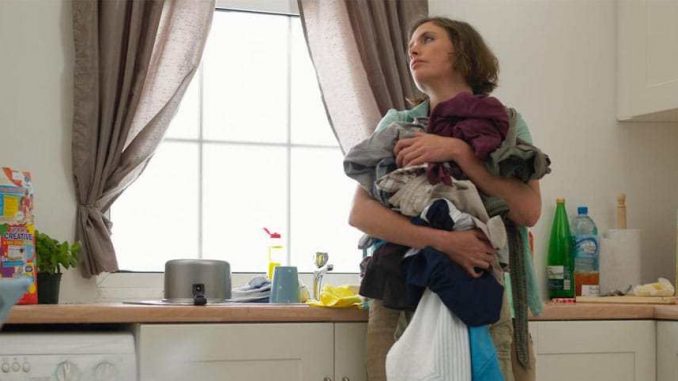Marriage is a beautiful thing. It brings people together under mutual admiration and love for each other. It provides both emotional and physical support during hard times. It also heaps work on you like a full-time job. And despite the weakening of traditional ideas of gender, women are still caught under the weight of this work. Studies show women take on a disproportionate amount of household tasks after marriage, while their husbands are doing less. It’s 2016. Everyone knows men and women are equally capable of running a washing machine. So why is this imbalance even a thing? Here’s what you need to know about the unequal distribution of labor in today’s (all too—) traditional marriages.
Do you pick up an unfair percentage of household chores? Share your stories below!
Marriage is work. A study from the University of Michigan found that marriage unevenly distributes labor between a couple. While marriage spares an hour of chores each week for men, women pick up more household labor. Seven hours more, to be exact.
Kids tip the scale. Young single women did the least amount of housework at 12 hours per week, while married women in their 60s and 70s did nearly twice as much as that. Women with more than three children spent 28 hours a week on combined household tasks.
Time are changing. In 2005, women committed only 17 hours a week to the same tasks, while did 13 hours. This shows progress from generations before, but women still do more than men.
Working hard or hardly working. In the study, older men helped out around the house more than younger men, and single guys worked harder than all age groups across the board. Almost half of all stay-at-home dads are 45 or older, which would suggest they should do more to help out around the house. So what’s their excuse?
Dads take the back seat. The number of stay-at-home fathers has risen considerably in recent years. In 2012 alone, two million dads were not working outside of the home, nearly doubling since 1989. In most of these cases, however, the dad is confined to the house due to an illness, with slightly fewer stay-at-home dads claiming they are either unable to find work or actually just want to take care of their kids.
Chores: America’s Pastime. The chores that take the most time out of the day are cooking, cleaning the bathroom and kitchen, and doing laundry. Domestic appliances have alleviated the workload quite a bit for everyone, but mopping is still quite the hassle.
Stay in your lane. In a poll of 2,000 adults by Groupon, two-thirds of women surveyed said they were more likely to do the cleaning, even though there wasn’t as much to do. Their reasoning? Cash and confidence were holding them back. Gender roles, man. Gender roles.
Women are bringing home the bacon. More women are out of the house, working and supporting their families than ever. Research shows that 40 percent of women are now the primary breadwinners in their family. So why does marriage still weigh them down with household chores?
Sorry for being sorry. Research suggests that women still take on more household chores even when they are the primary breadwinner as a “compensatory measure.” In other words, hardworking moms heap on housework as a way to comfort their lesser-earning husbands.
The inescapable truth. A research paper found that women who earn more than their husbands are more likely to be dissatisfied in their relationships. There’s a greater chance that female breadwinners still do more household work than their husbands. They also feel pressured to take fewer hours at their jobs, and are more likely to go for divorce. No wonder.
The gays do it better. Surprise, surprise: same-sex couples are way better at allocating chores so that each member of the family has an equal workload. Same-sex couples assign chores based on personal preferences and skills, while straight couples tend to stick with traditional gender roles.
Can I say something? Women in straight couples were 5 percent more likely to admit that they didn’t have a say in the division of household labor. Meanwhile, 11 percent of men felt this way, regardless of whether they were in a gay or straight couple. Could it be that men are just more domineering across the board?
Programmed robots. It’s hard to tell if more women take on the burden of housework because they care deeply about the cleanliness of their home, or if they were just raised that way. Do females actually have a greater instinctual need to clean the floor than men do?
Helping out is sexy. Research shows that men who felt they made a fair contribution to housework had better sex lives. They men must have been pulling their weight, since no wife would let their husband get away with thinking that simply dusting the doorknobs was “contributing.”
Get with the times. Families are changing, and so should the domestic division of labor. Doing household chores together is probably the best answer. By joining forces, husband and wife can maximize efficiency and carve out more time for themselves.


